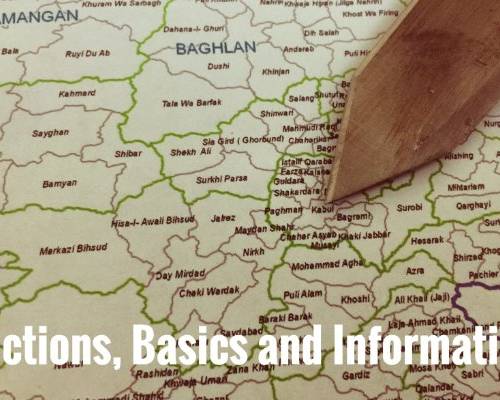Abductions in Afghanistan - the basics
21 August 2015 RPS Partnership
Written by RPS's colleague, Robert Ramos who is a Security Manager and Advisor in Afghanistan for ACTED. He writes in the first person from his experience about the kidnap situation in Kabul with insight and thoughtfulness....RPS Has highlighted in bold some points to note about basic security in the fragile country.
So far, there have been four reported successful abductions of expatriates this year in Afghanistan that I am aware of. The first took place in Faryab province, the second in Kunduz province earlier this year, as well as another two just recently in Kabul city itself. While details are purposefully withheld during ongoing negotiations for a release, they are never really shared even after the incidents have been successfully resolved. In the first case, a female expatriate working in Maymana city was abducted during the night from her guesthouse. She was later released and it is unclear if the negotiations included ransom or not.
The second case involved a male expatriate working in Kunduz province. He got abducted while travelling in a car riding towards Pul-i-Komri in Baghlan. After being held captive in Kunduz province for around six weeks, he managed to escape his captors and reach a nearby police checkpoint. The other two cases involve professionally executed abductions in Kabul’s Taimani district. Both cases involved senior female expatriate staff in transit between their guesthouse and their office. In both cases everyone is still hoping for a positive and swift resolution.
Apart from the first case, although not confirmed, it is rather likely that the incidents are criminally motivated rather than politically. Armed opposition groups tend to abduct national staff and then release them again after short negotiations, simply to reiterate that they have power in their areas of operation. Additionally, abducting expats has become less and less common for opposition groups. While it poses a source of income, it also usually results in retaliation because foreign involvement triggers a response by the security forces.
For example, as the Islamic Emirates of Afghanistan tries to reestablish political legitimacy, abducting expatriates becomes less attractive due to its criminal connotations. On the other hand, armed criminal groups have found a lucrative source of income in these activities, as they do not care about their public reputation. Should the negotiations for ransom prove futile, the groups usually still have the option to sell them off to other more extremist groups. Overall, it’s a lucrative business for well-organized criminal groups. No matter if criminally or politically motivated, all the cases mentioned above have two things in common.
Firstly, all of these cases display flaws within the intrinsic security setups. In the first case mentioned, the abducting element was easily able to enter the guesthouse facing no basic physical security setup to hinder them. It was later mentioned that the guesthouse was guarded, but the relevance of this statement seems low considering that the abductors remained completely unchallenged during the event.
In the second case mentioned, it was well known that the road between Kunduz and Pul-i-Kumri was frequented by illegal checkpoints that were specifically looking for Afghan government employees or expatriates.
Thus the abduction as a result of the road movement came as no surprise.
The last two incidents involved abductions that were professionally planned and executed. The intended targets, their travel routes, and the vehicles were well known.
In the second case there was also a known threat warning concerning the event.
In essence, diligently following through on the basics of physical and personal security, as well as solid security management, could have prevented the abductions. Avoiding travel or time routines, implementing basic information security, undergoing employee vetting, and concentric perimeter defense are all basic tools of the trade. These can be read in most security plans, but rarely are they executed properly.
A simple but robust security setup that is properly executed goes a long way when it comes to high-risk environments.
The second similarity is that information was not shared. It is logical that details cannot be spread whilst negotiations are ongoing. This would obviously endanger the abductee as well as the parties involved in the resolution. However, after a case is concluded, as much as possible, relevant information should be shared so that lessons can be learned and future incidents prevented. Details about the victims are not as important as the perpetrators’ modus operandi and the weaknesses exploited. This gives other organizations a chance to adapt to current risks and to reduce their vulnerabilities. Without any concrete consequences following an incident, we can hardly talk about lessons learned but merely about lessons observed.
Nowadays, any organization is worried about reputation damage, but the question remains: Does an organization comes out of a crisis stronger when learning and taking responsibility takes place, or when focused on covering up pertinent details?
Furthermore, not utilizing the capacity to prevent others from falling into the same trap could be seen as unethical. If relevant information related to significant security events is shared at least amongst partner organizations, lessons could be learnt as a result. This would be highly complementary with a solid security setup in terms of keeping staff safe and protecting organizational reputation.
Thanks to Robert Ramos.
Contact [email protected] for all travel guidance and security requirements and training for travel to Afganistan and especially if you are planning to live and work in Kabul. We can run tailored training for your requirements.


